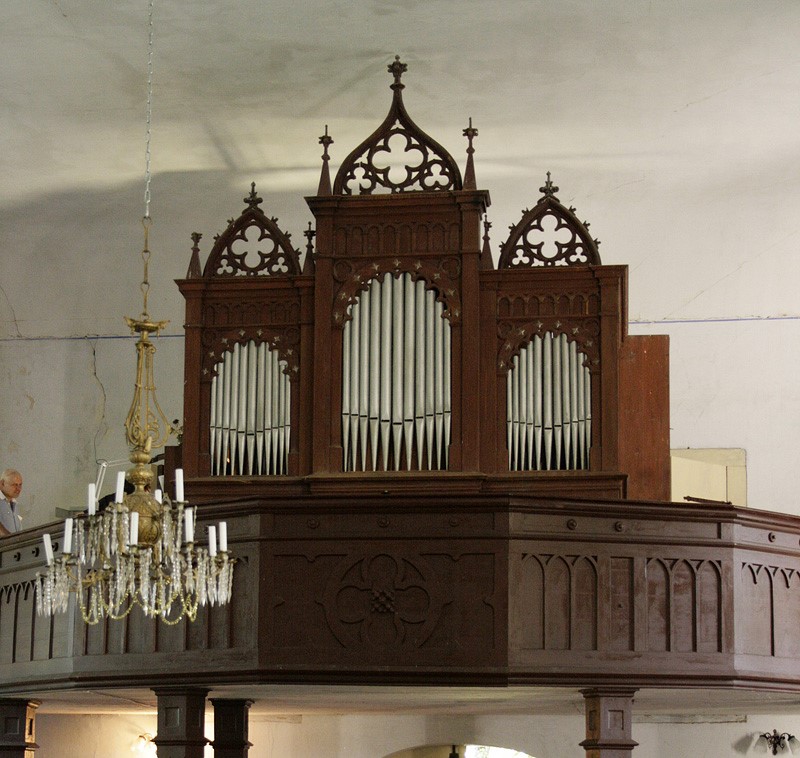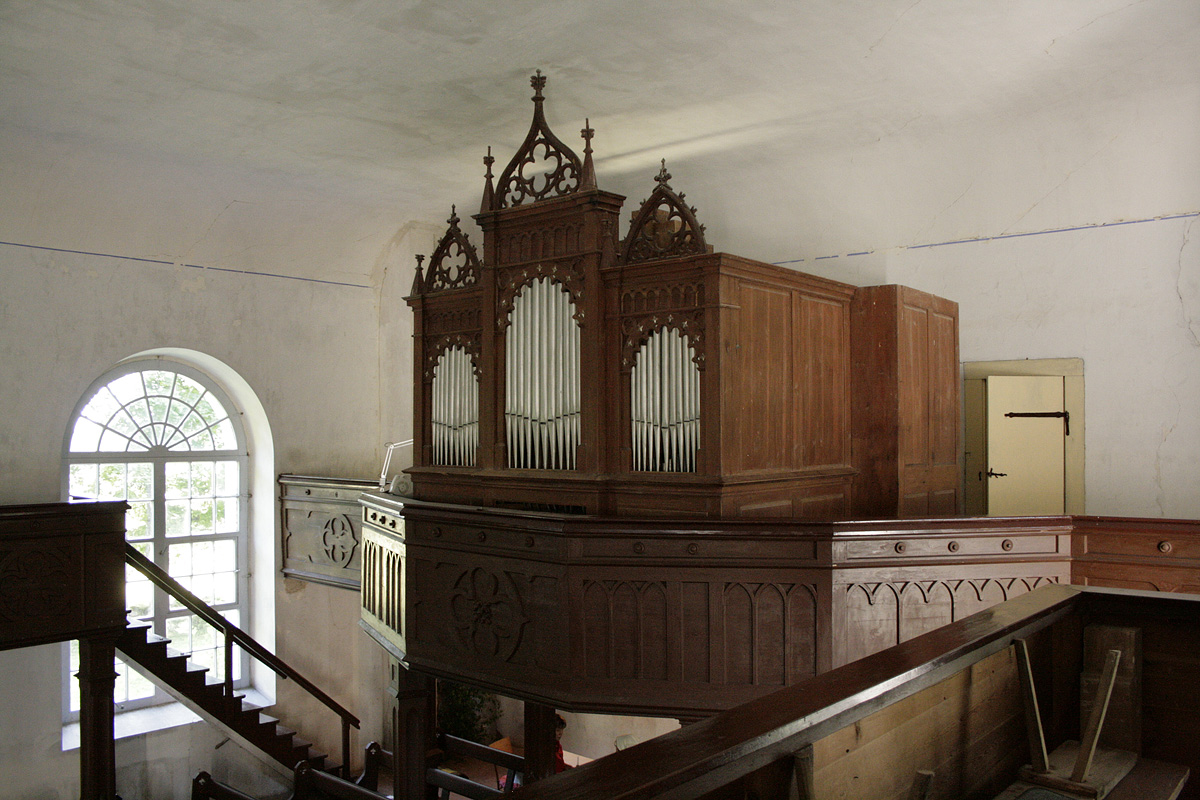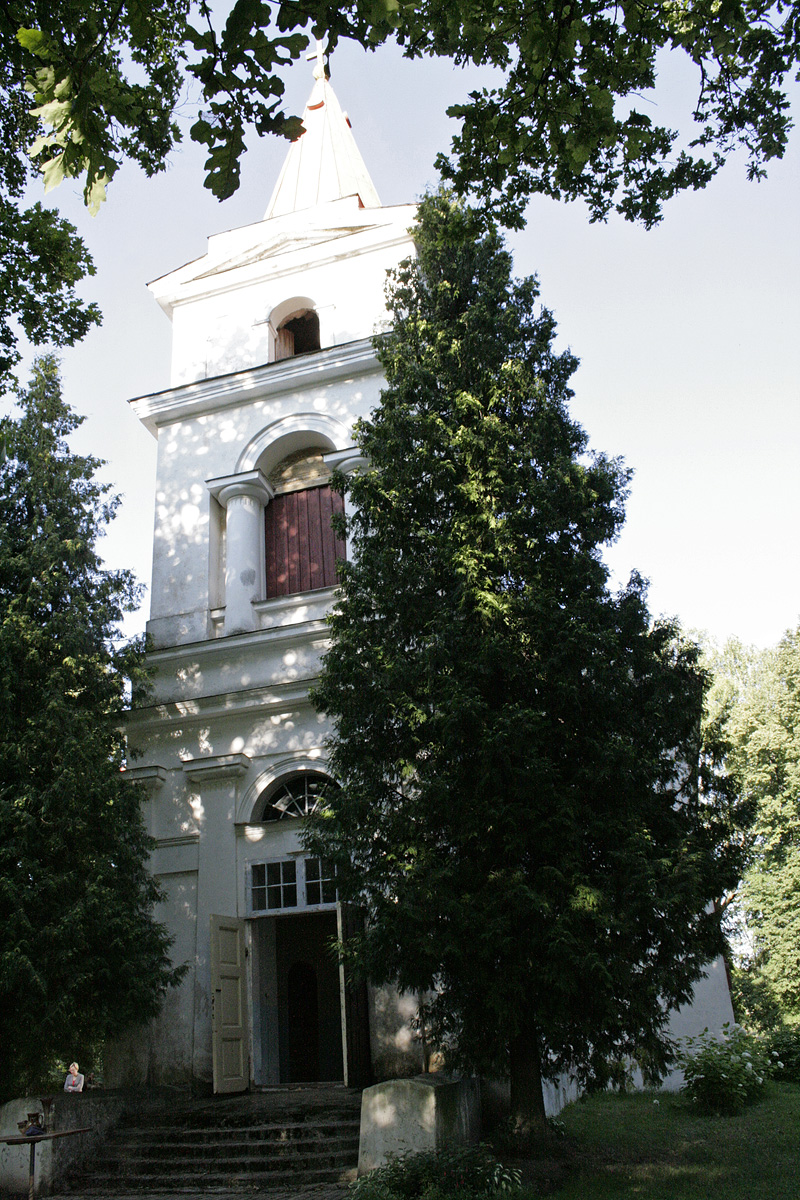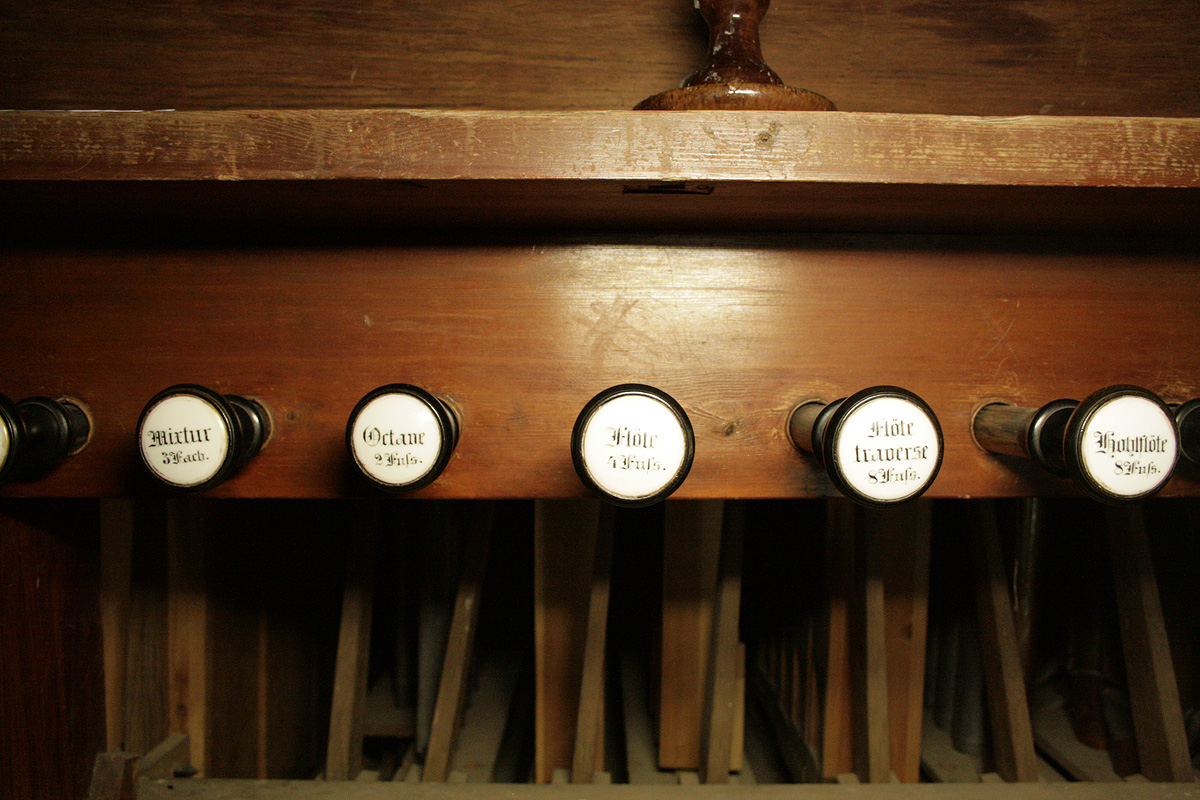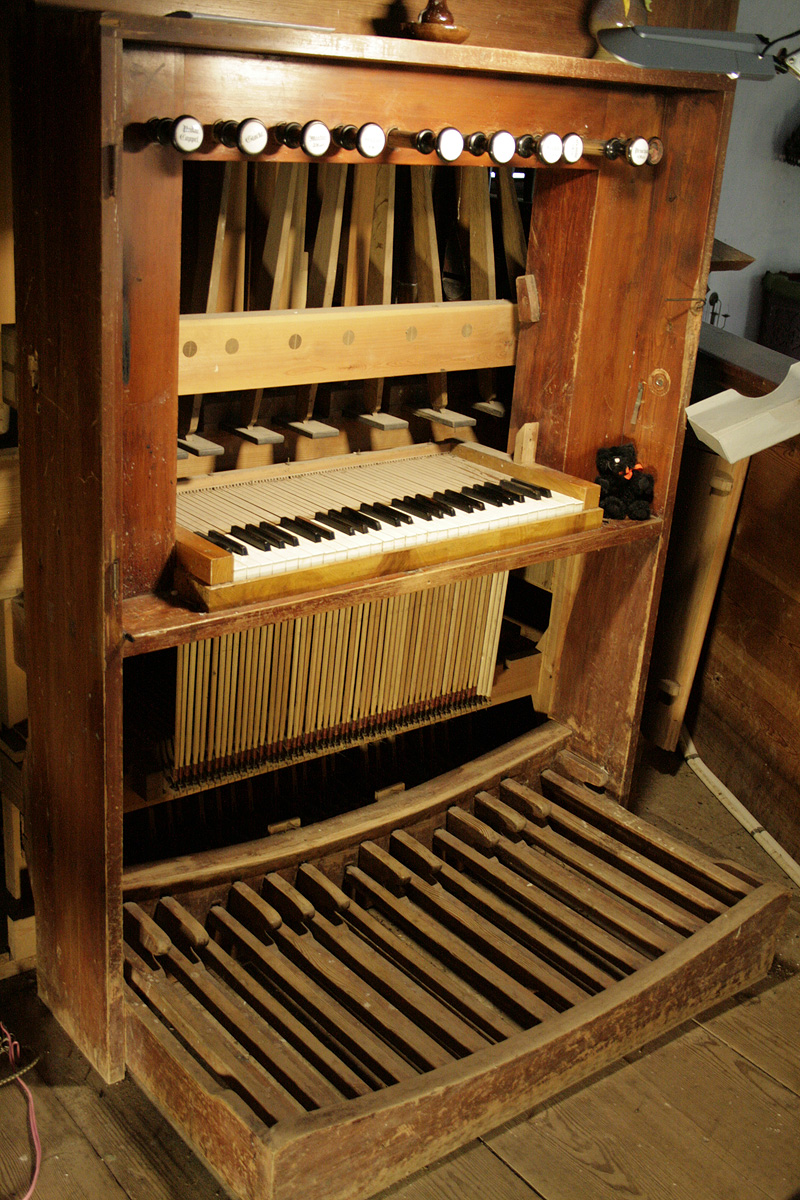Bruģi, Saukas luterāņu baznīca
| Builder | F. Weißenborn (19th C.) |
|---|---|
| Year | 1866 |
| Period/Style | Romantic |
| Stops | 9 |
| Keyboards | 1+P |
| Keyaction | tracker/mechanical |
| Tuning | Equal at 448 Hz |
The single-manual organ with a permanently engaged Subbass 16' in the pedal is one of the first organs built by Friedrich Weißenborn in Latvia. Constructed in 1866 for 600 rubles, as noted on the organ's bellow seat, the organ was made by Weißenborn, an organ builder from Gotha, Germany. The competitive price of the organ compared to similar works, such as those by Weißenborn's teacher August Martin, highlights its value; for instance, Martin's 1863 organ for the Sloka Church with 8 registers cost 1050 rubles.
The pastor of the Sauka congregation, W. Müller, documented the construction of the organ along with other church furnishings in the "Rigasche Zeitung," where the organ was praised by Jelgava music director Rudolf Postel for its power, pleasant sound, tuning purity, and craftsmanship. Although Postel mentioned the organ had 10 voices, it actually has 9, likely referring to the number of stops at the console.
During World War I, all original prospect pipes were lost, now replaced by painted zinc pipes. The organ was tuned by H. Kolbe on July 18, 1925, and by Jēkabpils master Juris Sockis in 1928 and again in August 1938, as indicated by inscriptions on the organ. In the 1980s, missing pipes were replaced with new brass pipes crafted by Jānis Kalniņš inside the organ.
The pastor of the Sauka congregation, W. Müller, documented the construction of the organ along with other church furnishings in the "Rigasche Zeitung," where the organ was praised by Jelgava music director Rudolf Postel for its power, pleasant sound, tuning purity, and craftsmanship. Although Postel mentioned the organ had 10 voices, it actually has 9, likely referring to the number of stops at the console.
During World War I, all original prospect pipes were lost, now replaced by painted zinc pipes. The organ was tuned by H. Kolbe on July 18, 1925, and by Jēkabpils master Juris Sockis in 1928 and again in August 1938, as indicated by inscriptions on the organ. In the 1980s, missing pipes were replaced with new brass pipes crafted by Jānis Kalniņš inside the organ.
| Manual | Pedal |
|---|---|
| Principal 8' | Subbass 16' |
| Gamba 8' | |
| Hohlflöte 8' | |
| Flöte traverse 8' | |
| Principal 4' | |
| Flöte 4' | |
| Octave 2' | |
| Mixtur 3fach |
Hohlflote 8 Octave 2
0:00
0:00
Flautas un Principali
0:00
0:00
Principalu pleno
0:00
0:00
Tutti bez gamba 8 un Traversflote 8
0:00
0:00
Tutti
0:00
0:00
https://orgcat.lv/sauka_main.htm
 Pipe Organ Map
Pipe Organ Map